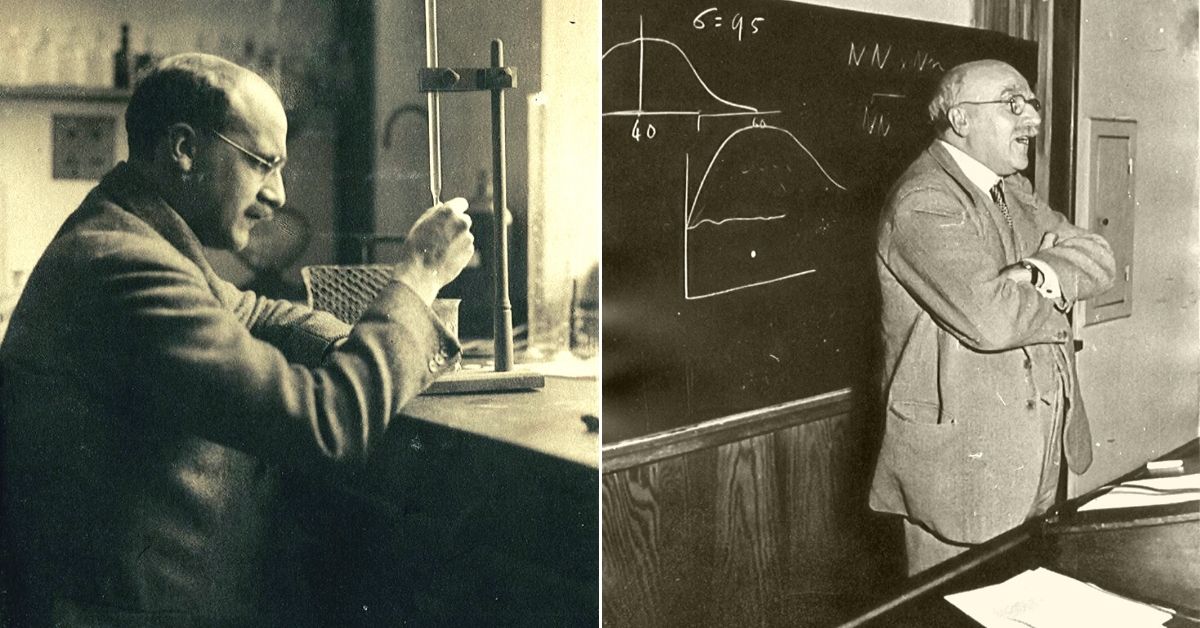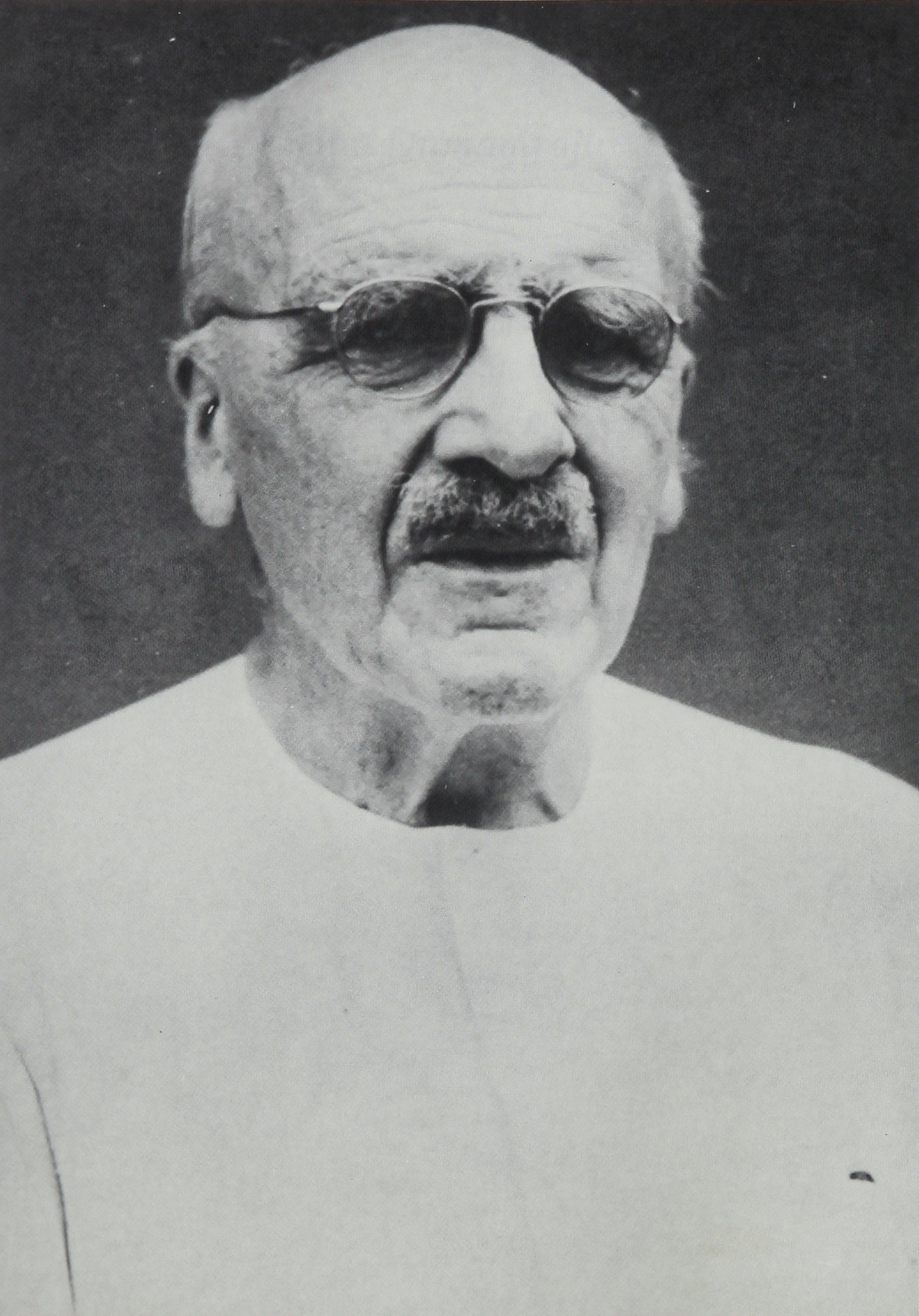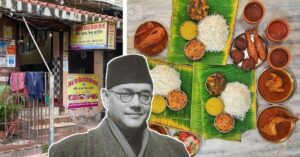One of the World’s Greatest Geneticists, He Gave Up British Citizenship for India
As the legendary science fiction author Arthur C Clarke once suggested, “JBS Haldane was perhaps the most brilliant science popularizer of his generation”. #LostTales

JBS Haldane ranks among the greatest scientists of the 20th century, particularly for his invaluable contribution to our understanding of genetics. More fascinatingly, however, this remarkable polymath left his home country of the United Kingdom in 1957 and moved to India permanently. He took up residence and Indian citizenship with his wife Helen Spurway, a gifted biologist in her own right.
Never before in the 20th century had a scientist of his standing chosen to take his scientific research to India from the West—not to mention becoming a citizen.
Born on 5 November 1892, in Oxford, England, JBS grew up in privilege with his father John Scotee Haldane, an Oxford University physiologist. JBS was a child prodigy, learning how to read and acquiring a certain degree of familiarity with scientific terminology by the tender age of three. The influence of John Scott loomed large on his son with the duo acting as their own “guinea pigs” in various experiments, including ascertaining the physiological effects of poison gases.
But the turning point for JBS came when his father took him to a lecture by A D Darbishire, a British zoologist and geneticist, about legendary scientist Gregor Mendel’s laws of inheritance, dominance and segregation. The lecture facilitated his fascination with genetics.
JBS studied at Eton, an elite boys school, and subsequently at Oxford University, where he pursued the Classics and Mathematics, graduating with honours in 1914. However, his academic pursuits were brought to a halt by World War I. Commissioned to the British Army, he served in France and Iraq, where he was wounded.
Following the War, he came back to Oxford to pursue his research in genetics.
“His most important genetical contributions were a series of mathematical papers on the effect of natural selection, which were summarized in his book, ‘The Causes of Evolution’. This work became the foundation for ‘population genetics’ along with the works of R.A. Fisher and Sewall Wright. Haldane [also] introduced the important idea that immunity to infectious diseases played an important part in human evolution…He emphasized the importance of ethical considerations in evaluating eugenic programs and the impact of in vitro fertilization,” writes Krishna R Dronamraju, a colleague of JBS, for the Indian Journal of Human Genetics.
In many ways, JBS played a critical role in laying the foundation of classical human genetics.
He “derived the law of steady-state kinetics in enzyme chemistry”, besides ascertaining the physiological effects of carbon dioxide and carbon monoxide by testing them out on his own body, a method he learnt from his father.
After a four-year stint as a Professor of Genetics at the University College in London, he spent the next twenty as the Professor of Biometry. As a professed socialist and humanist, JBS was also deeply engaged in popularising the science to the masses beyond the laboratory.
As the legendary author Arthur C Clarke once suggested, “JBS Haldane was perhaps the most brilliant science popularizer of his generation”.

However, towards the fag end of his time in England, he grew increasingly disenchanted by British politics and society. The breaking point was his government’s role in the Suez Crisis of 1956, which he saw as “violations of international law”, while admiring the Indian Independence Movement. Moreover, the warmer climate of India and Prime Minister Nehru’s experiments with socialism also offered JBS and wife Helen with the necessary rationale for shifting base.
It was the legendary statistician P C Mahalanobis, who offered JBS a teaching position in the Indian Statistical Institute, Kolkata. At this time, he also began immersing himself in Indian philosophy and logic systems, applying indigenous knowledge systems to scientific research.
He continued his work in the study of genetics in India, ranging from studies about inbreeding in Andhra Pradesh, and colour blindness in Andhra and Odisha, apart from other such studies.
“Never before in modern times had a Western scientist of Haldane’s calibre chosen to move to India – not to speak of becoming a citizen. He was critical of Indian science and scientists but saw hopes in young people. During his stay here, he did much for research in animal and human genetics and in support of science education,” writes Dr Veena Rao, a faculty member at the National Institute of Advanced Sciences. Science, he believed, must help “common citizens understand what goes on inside the research laboratories, for some of which he pays,” writes Dr Veena Rao, Adjunct Faculty at the National Institute of Advanced Studies, for The Hindu.
He also criticised the bureaucratic roadblocks that stifled true research in India. There was even a dust-up between him and the management at the ISI, which led to his resignation and the eventual shift to Bhubaneswar, Odisha, on the invitation of Biju Patnaik.

“Haldane was appointed [the] head of an entirely independent research establishment, where he worked with his young colleagues from Calcutta, including S D Jayakar, with whom he published papers on population genetics that are as enduring as the best of Haldane’s early work,” says this Down to Earth profile.
What’s particularly remarkable about his life is how quickly people forgot him. More than anything else, however, he passed on to his students and peers a passion for the sciences.
Also Read: ‘This is Your Prize, Sir.’ How a Pak Nobel Laureate Paid Tribute to His Indian Guru
Just before passing away on 1 December 1964 of rectal carcinoma, he issued strict instructions that he wanted to dedicate his body to scientific research–the mark of a true scientist.
“Our only hope of understanding the universe is to look at it from as many different points of view as possible…Now, my own suspicion is that the universe is not only queerer than we suppose, but queerer than we can suppose,” he wrote.
(Edited by Shruti Singhal)
Like this story? Or have something to share? Write to us: [email protected], or connect with us on Facebook and Twitter.

Similar Story

Netaji Bose’s Favourite Eatery Has Been Serving Traditional Delicacies for Over 100 Years
The Swadhin Bharat Hindu Hotel in Kolkata, started by Mangobindo Panda, is a century-old pice hotel where Indian freedom fighters like Netaji Subhas Chandra Bose would enjoy Bengali delicacies.
Read more >
If you found our stories insightful, informative, or even just enjoyable, we invite you to consider making a voluntary payment to support the work we do at The Better India. Your contribution helps us continue producing quality content that educates, inspires, and drives positive change.
Choose one of the payment options below for your contribution-
By paying for the stories you value, you directly contribute to sustaining our efforts focused on making a difference in the world. Together, let's ensure that impactful stories continue to be told and shared, enriching lives and communities alike.
Thank you for your support. Here are some frequently asked questions you might find helpful to know why you are contributing?


This story made me
-
97
-
121
-
89
-
167












